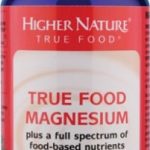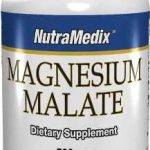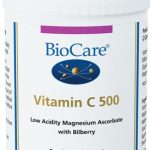If you’re someone who’s nutrient deficient then you’re in for bad news. It’s because you’re consuming vitamins, minerals and other nutrients in the right quantities and to the right levels why you may get ill and not feel at your best a good deal of the time. If you seem to get ill more often than other people, it could well be because you’re nutrient deficient.
But how do you know for sure? And how do you know which nutrient – or nutrients – you’re deficient in? Well, that’s a bit tricky to ascertain, as lacking enough of a specific nutrient would likely be revealed by very specific symptoms – but then there are crossovers that suggest you may be lacking in another nutrient.
All that said, though, one of the leading nutrient deficiencies in adults is of magnesium, which isn’t that surprising given the roster of important things that magnesium’s responsible for in the human body; at least 300 different biochemical functions, in fact, that see it play pivotal roles in heartbeat rhythm regulation, energy production, enzyme and neurotransmitter function and the balancing of nitric oxide levels.
In fact, it’s estimated that as many as eight in 10 adults are deficient in this vital mineral; believe it or not. How do you know if you’re not getting enough magnesium through your diet? Clues could be if you tend to experience muscle aches and/ or spasms, poor sleep and digestion and anxiety and exaggerated worry. Yet, again, from this it would be hard to pinpoint you’re definitely lacking in magnesium, as they’re rather general symptoms – to that end, it’s best to check with a doctor or medical professional.
Not Enough Magnesium – What happens?
So much for what magnesium does in the body, but when it’s not present in high enough levels, what conditions can its absence help cause? The list’s a long one – underlining just how crucial the nutrient is to us:
- Alzheimer’s disease, glaucoma or multiple sclerosis owing to peroxynitrite damage1
- cardiovascular disease and hypertension1
- damage to the kidneys and liver 1
- impotence1
- increased premenstrual syndrome (PMS) symptoms1
- mood swings and potential behavioural disorders1
- osteoporosis1
- recurrent bacteria- or fungal-based infections1
- restless leg syndrome1
How can you Boost your Magnesium Intake?
<style=”text-align: justify;”>It’s often said that increasing your magnesium levels via supplementation may cause disruption of your body’s nutrient balance. The thinking here goes that, because (in spite of its importance) we need relatively little magnesium compared to other vitamins and minerals, consuming large, regular amounts of magnesium could create an imbalance.
To that end, ideally one should seek to get their adequate helping of magnesium from their diet – along with all their other required vitamins and minerals – and foods that are rich in magnesium and advised for widening your diet include vegetables like avocados, bananas, black beans, broccoli, Brussels sprouts, mung beans, potatoes, spinach and Swiss chard, as well as nuts and seeds like almonds, cashews and pumpkin seeds2.
And yet, if for whatever reason, you’re incapable of altering your diet to include a fair number of such foods then the expert thinking is that natural supplementation’s an effective way to overcome Magnesium deficiency. This in no small part is because of, in addition to magnesium’s health-giving properties, its relationship with other nutrients in the body such as calcium – it’s thought that taking magnesium supplementation has the handy, added bonus of counterbalancing levels of calcium, should you also be taking supplements of the latter on a regular basis2.
Plus, if you go the magnesium supplement route it’s also likely to be of benefit if you find you tend to rely on antibiotics to beat infections (although, of course, other natural supplements may help you to avoid infections in the first place!). Why? Well, heavy antibiotic use may result in damaging your digestive tract to the extent that magnesium isn’t absorbed from nutrient-rich foods2. Something to think about.
Magnesium Supplements
The following magnesium-based supplements are all available from The Finchley Clinic:
 True Food Magnesium – Offers a highly bioavailable, potent food form of magnesium for enhanced absorption.
True Food Magnesium – Offers a highly bioavailable, potent food form of magnesium for enhanced absorption.
 Magnesium Malate – Provides 100mg elemental magnesium per capsule, as well as Malic acid.
Magnesium Malate – Provides 100mg elemental magnesium per capsule, as well as Malic acid.
 BioCare Vitamin C – A Magnesium Ascorbate supplement that provides Vitamin C as well as magnesium, in addition to bilberry extract which comprises flavonoids, a potent source of antioxidants.
BioCare Vitamin C – A Magnesium Ascorbate supplement that provides Vitamin C as well as magnesium, in addition to bilberry extract which comprises flavonoids, a potent source of antioxidants.
References:
1. Johnson S. ‘The multifaceted and widespread pathology of magnesium deficiency’. Med Hypotheses. 56 (2): 163-70. Feb 2001.
2. ‘Should you be taking magnesium supplements?’. https://draxe.com/magnesium-supplements.
